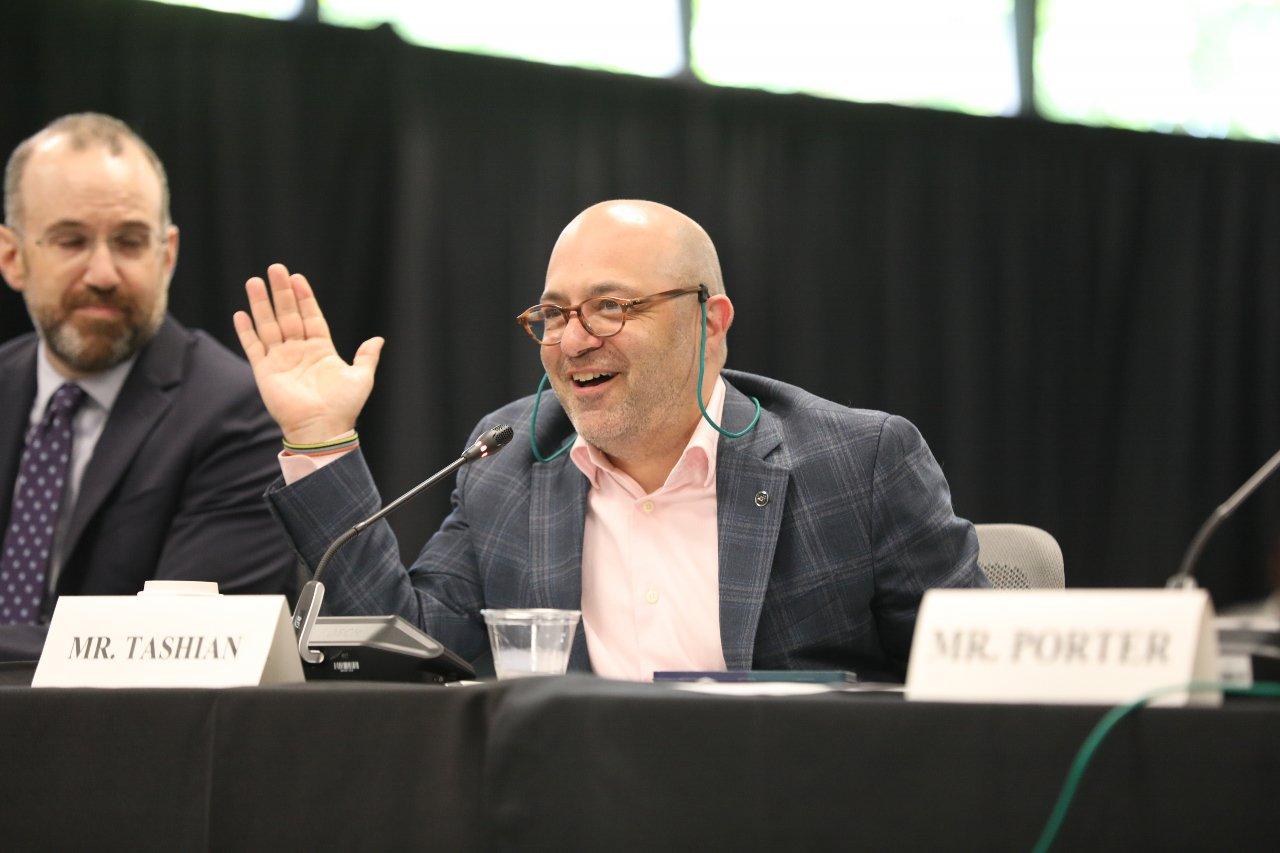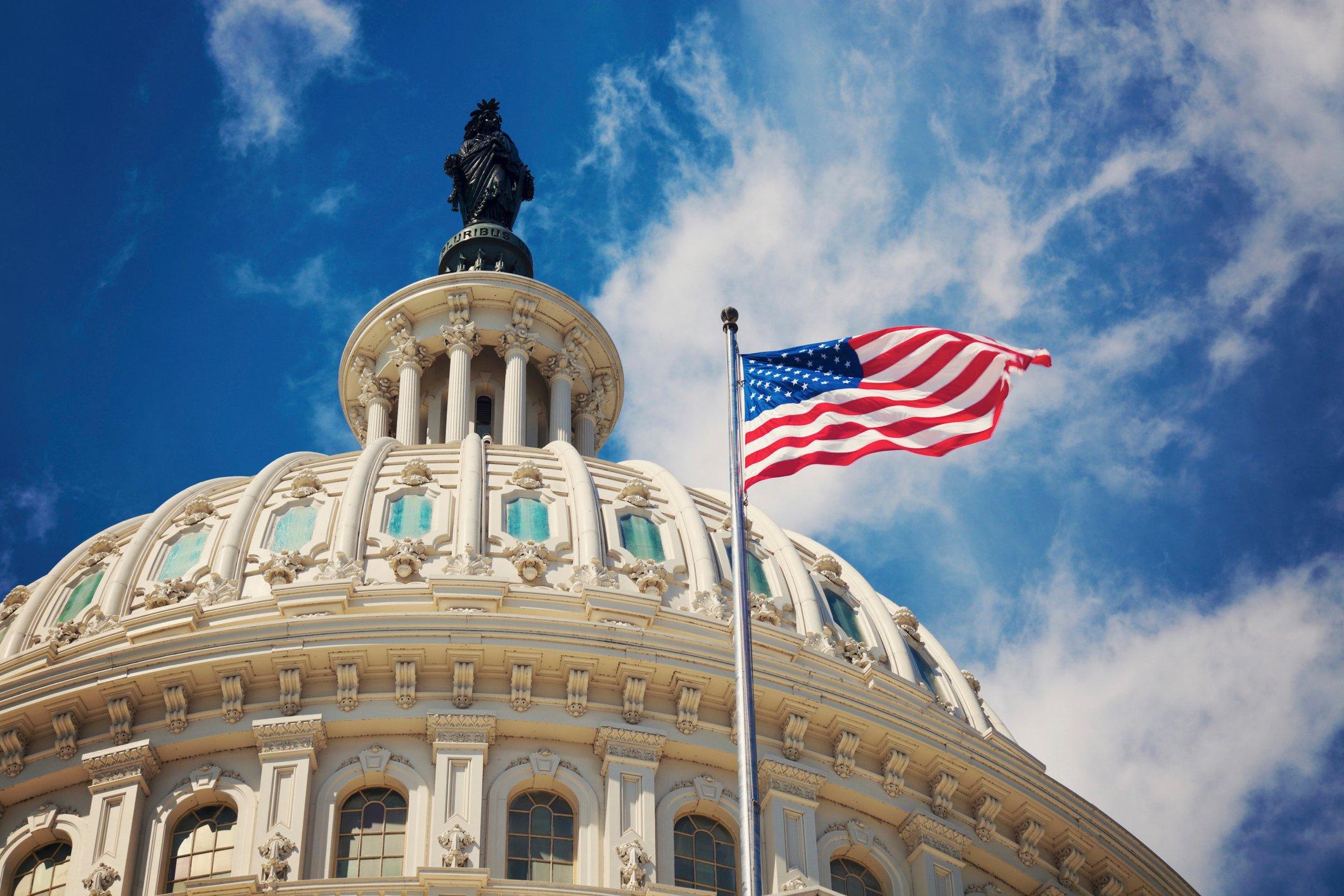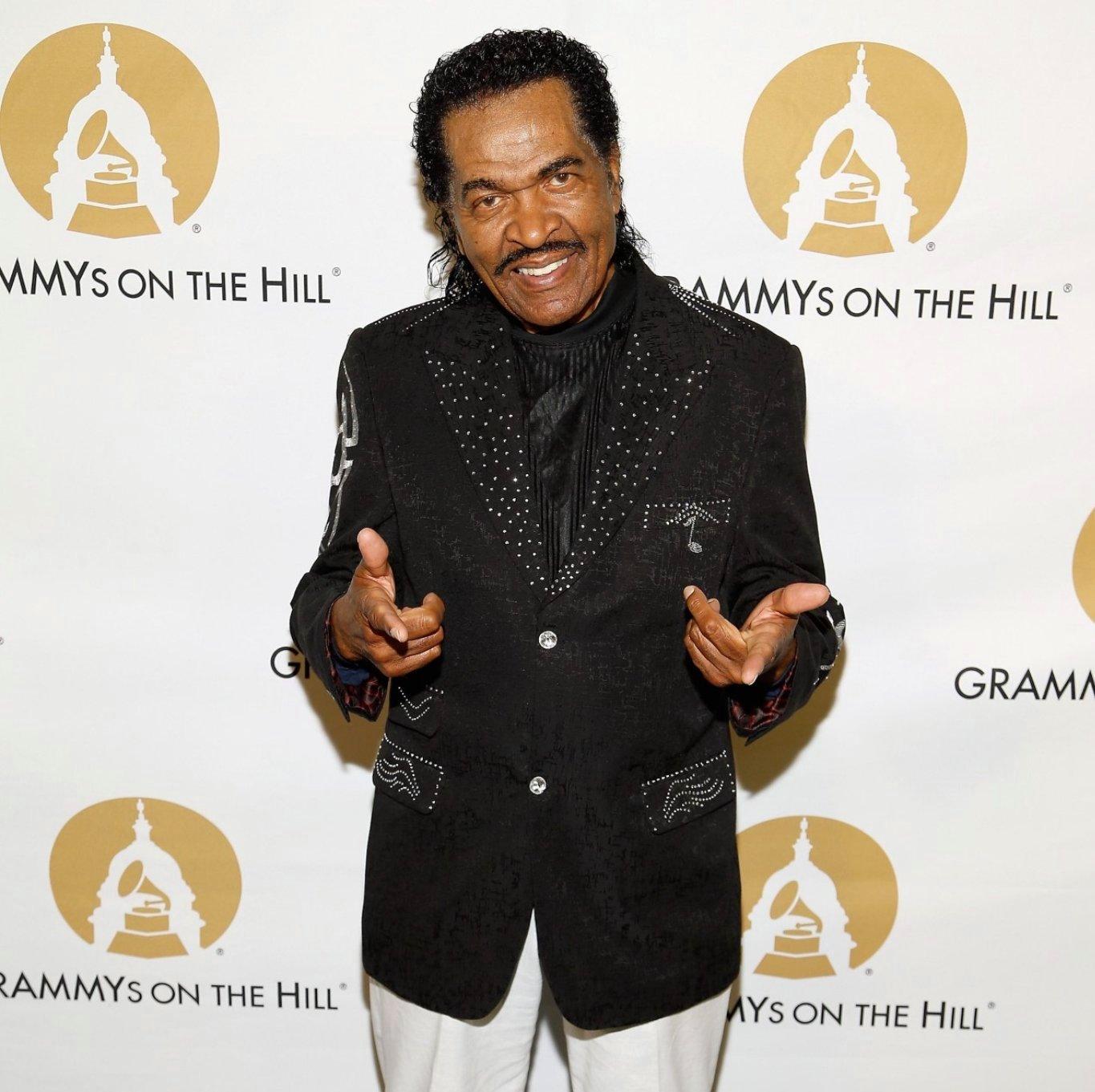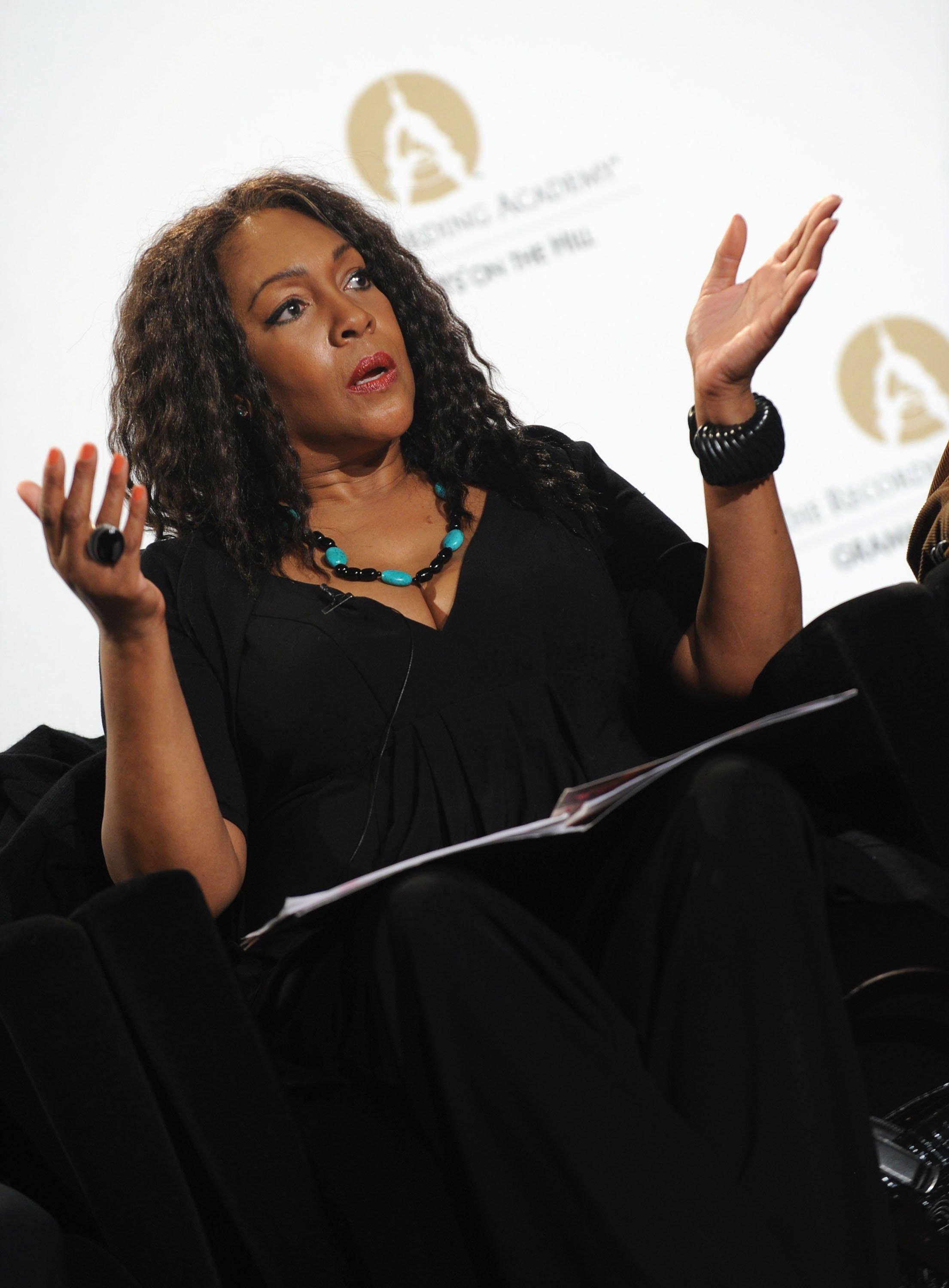Photo: House Judiciary Committee

news
The Music Modernization Act Five Years Later: Congress Checks On The MMA’s Progress
The hearing gave members of the House Judiciary Committee's Subcommittee the opportunity to take a close look at the system created by the MMA.
On June 27, members of the House Judiciary Committee's Subcommittee on Courts, Intellectual Property, and the Internet held a field hearing in Nashville to commemorate the five-year anniversary of the passage of the Music Modernization Act (MMA) and examine the law's effectiveness.
In preparation for the hearing, the Recording Academy made sure that creators were well represented with Recording Academy member and two-time GRAMMY winning songwriter, producer, musician, and artist, Daniel Tashian, testifying as the hearing's only active music maker.
The Music Modernization Act, which became law on October 11, 2018, was the biggest update to music law in decades. The Act united provisions from across the music community under one legislative umbrella to ensure advancement and protections for all music creators.
This was a long-term priority for the Recording Academy, which worked closely with Congress to advocate for its passage starting as early as 2014 — and was eventually represented in the Oval Office during the bill signing ceremony after the MMA's final passage years later.
The hearing gave members of the subcommittee the opportunity to take a close look at the system created by the MMA, while also examining whether the legislation is working as intended or if further improvements are needed.
Subcommittee Chair Darrell Issa (R-CA) opened the hearing by stating, "We're here today to listen to some of those creators and other key stakeholders about whether the system we set up is working properly and what more needs to be done.
"We're here in Music City, home of the Mechanical Licensing Collective [MLC], to see if the MLC is solving the problems it was intended to solve," Issa continued. "We're also here to further the work of this committee and especially the needs of the creators."
Issa continued to state that people's ability to successfully create music comes from the copyright and patents the committee has instated for decades.
However, he emphasized that it is not enough to only "grant a right, we have to in fact make sure that right is rewarded in a predictable way that allows for two business plans: the business plan of those who take the license and the business plan of those who create the music we'll be talking about today."
Following the opening statements and remarks from Chairman Issa, Rep. Hank Johnson (D-GA), Rep. Scott Fitzgerald (R-WI), Rep. Jerry Nadler (D-NY), and Rep. Ben Cline (R-VA) the witnesses took their oath and began their testimony.
In addition to Tashian, witnesses included legendary songwriter and former Academy Trustee David Porter, CEO of The Mechanical Licensing Collective Kris Ahrend, CEO of the Digital Media Association Garrett Levin, General Manager of Big Machine Music Michael Molinar, and independent publisher Abby North.
Tashian, who has worked with artists including Tim McGraw, Demi Lovato, Burt Bacharach, the Jonas Brothers, and Kacey Musgraves, began his testimony by highlighting the positive change the passage of the MMA has provided the music community.
He stated, "As a songwriter, I am grateful that the MMA changed the way we are paid by streaming services. This bill reformed a previously unreliable and opaque system into one that provides transparency and accountability. Since 2021, The Mechanical Licensing Collective has paid out over a billion dollars in royalties and has achieved a matching rate of nearly 90 percent."
Not only did Tashian outline how the MMA has improved a songwriter's ability to collect royalties, but he also laid out examples of ways Congress and the U.S. Copyright Office can continue to improve upon the successes of the MMA.
First, he emphasized that there is still "hundreds of millions of dollars in unmatched royalties and [The MLC] must continue their outreach efforts to identify every songwriter who has money owed to them."
Second, Tashian referred to the recent decision made by the Copyright Royalty Board on the Phonorecords III rate stating that "The MLC must work expeditiously to collect and distribute the back pay owed by streaming services to songwriters" within the six-month period, as stated by law.
Third, he reminded members of Congress that "The MLC is an administrative body, not a policy making body… recent disputes over songwriter termination rights illustrate that Congress and the Copyright Office must continue to stay engaged to protect the rights and interests of songwriters."
To conclude his testimony, Tashian ended on a high note by recognizing the AMP Act and the CLASSICS Act which both fell under the MMA in its final passage.
Tashian says the AMP Act "recognized the important role of producers, engineers, and mixers in copyright law. This provision codified the LOD [Letter of Direction] process by which producers can collect their share of digital royalties directly through SoundExchange, an important partner and friend to our community."
However, Tashian noted that the LOD process must be "streamlined and improved" and that efforts should be made to increase awareness of the practice within the artist community.
Finally, Thasian thanked Congress for including the CLASSICS Act in the MMA which allows "for the payment of digital royalties for recordings created prior to 1972." Tashian noted his own personal connection to the issue, as his father led the 1960s band Barry and the Remains.
Tashian's perspective on this issue was both unique to the hearing because he was the only current creator voice and was noticeably valuable, as the members of Congress repeatedly turned to him during questioning to ensure they received an artist's input on their inquiries.
His involvement at this hearing is one of many ways the Recording Academy is continuously working to ensure music creators are heard where it matters most.
Capitol Hill Spent The Week Talking About AI: Key Takeaways For The Music Community

Photo: Tetra Images - Henryk Sadura
news
U.S. Senators Stand Up For Songwriter Royalties Ahead Of Streaming Decision
In a letter to the U.S. Copyright Office, a bipartisan group of Senators are demanding that streaming services pay long-overdue royalties to songwriters — quickly.
As streaming services continue to look for ways to avoid paying music creators the royalties they are owed, five United States Senators have stood up for songwriters in a recent letter to the United States Copyright Office.
Every five years, the Copyright Royalty Board determines the royalty rates that streaming services must pay to songwriters. This year, the board is meeting to determine what the rates will be from 2023-2027. However, there is an ongoing battle over the rates decided upon for 2018-2022. In 2019, Spotify, Amazon, Google and Pandora appealed the 2018 ruling and have been in an ongoing trial. As a result, songwriters have not been receiving the royalties they are owed for that period. A decision on whether streaming services must pay the rate the CRB decided on in 2018, or if they will be able to pay a lesser rate, is expected in the near future.
In anticipation of that ruling — which is likely to be in favor of the songwriters — the Digital Licensee Coordinator (DLC), which represents the streaming services, wrote a letter to the U.S. Copyright Office requesting that they delay or extend the period of time in which streaming service must repay the songwriters their royalties. This would mean that, on top of songwriters not getting paid what they have been owed over the last four years, streaming services would take even longer to pay back the owed royalties.
The streaming services argue that they are not prepared for the challenges that a timely backpay of royalties would impose, despite knowing that this was a possibility since they started the appeals process.
In an effort to stop the U.S. Copyright Office from granting the DLC’s wishes, a bipartisan group of five United States Senators — Sen. Thom Tillis (R-NC), Sen. Mazie Hirono (D-HI), Sen. Marsha Blackburn (R-TN), Sen. Bill Hagerty (R-TN) and Sen. Sheldon Whitehouse (D-RI) — also wrote a letter to the U.S. Copyright Office strongly objecting to the DLC’s request. In their letter, which the Recording Academy strongly supports, the Senators note that, "the digital companies’ request would prevent songwriters from timely receiving royalties that they may be owed and on which they rely."
The Senators add that streaming services have a magnitude of resources compared to the songwriters who are awaiting their royalty payments: "Digital music companies are some of the largest, most sophisticated global technology companies. Their concerns about operational challenges resulting from a...decision they appealed and have litigated for years, must be viewed in the context of the extensive resources they are able to gather to address those challenges. Their concerns must also be viewed in in comparison to songwriters, who as small businesses or individual creators are the most vulnerable parties in the music ecosystem."
The U.S. Copyright Office responded to the Senators via letter acknowledging their concerns and affirming that the Office takes "stewardship of the [Music Modernization Act] and general oversight of the blanket licensing regime seriously" and will be sure to engage with all affected stakeholders after a final decision by the CRB is released.
The Recording Academy applauds these Senators for standing up for songwriters and acting to ensure that they are paid the royalties they are owed in a timely manner.

Bobby Rush
Photo: Paul Morigi/WireImages for The Recording Academy
news
Profiles In Advocacy: Bobby Rush On The Importance Of Uniting In Support Of Creators' Rights
The Recording Academy has asked our members to reflect on their path of becoming an advocate for music and discuss the importance of using your voice to create change
The Recording Academy has asked our members to reflect on their path of becoming an advocate for music and discuss the importance of using your voice to create change. This "Profile in Advocacy" is from Bobby Rush, who recently took home the 2021 GRAMMY for Best Traditional Blues Album.
I'm so grateful and honored by the opportunity to write this article about my experiences as an advocate. I'm thankful to be able to speak my opinion about where we have gone and are going, and what is happening now regarding the progress it will bring to the future of music. Let me start out by saying that I'm very appreciative to the Recording Academy for bestowing upon me the six GRAMMY nominations and two GRAMMY Awards for my records throughout my career. It’s an incredibly high honor. I'm mainly involved in this advocacy because I saw Black men not represented or included in the music industry throughout my career, and that I have a presence that can make a difference by being myself so that other Black people can see me and feel encouraged to get involved themselves. I believe that my involvement in various organizations and aspects of the music industry have encouraged Black artists to do the same over the years. I hope that I am able to continue to have that impact on not only Black artists, but all artists.
I recognize that I am able to have a voice in the process of advocacy because of the success that I've had with the GRAMMYs and through my long career. Now that I have achieved this success, I have been able to be a part of real change on a national level by meeting with members of Congress and highlighting laws that need to be updated to better compensate, and protect, songwriters, artists, and musicians. I have also been able to work with leaders in local and state government, such as mayors and governors, to effect change in my communities.
In 2017, I was asked to participate in GRAMMYs On The Hill in Washington D.C. Of the many policy priorities addressed during the Advocacy Day, our main focus was to stress the importance of passing reforms, like what would become the Music Modernization Act, with members of Congress. Signed in 2018, the legislation immediately impacted my colleagues and I by closing the “pre-1972” loophole that allowed digital services to forgo compensating legacy artists, and securing a system for accounting and issuing payments of mechanical royalties from streaming services which is now set up through the MLC, the Mechanical Licensing Collective. I was blown away by the experience of going to Capitol Hill to meet with our few scheduled meetings, but also by personally being brought outside the House floor and seeing dozens of my friends and fans that are members of Congress. This ranged from Congressman Bobby Rush out of Chicago, to Congressman Stephen Cohen from Memphis, to Senator Roger Wicker of Mississippi, to the great late Congressman John Lewis. Throughout my career, I have become friends with many politicians and performed for those such as Rep. Bennie Thompson, President Bill Clinton and Senator Hillary Clinton, as well as the African American Mayors Association, and the Congressional Black Caucus. However, the experience at GRAMMYs On The Hill gave me a bird's eye view of exactly how legislation is supported and potentially turned into law.
For those of you who don't know me, I was born in the 1930s, in a little town called Carquit just outside of Homer, Louisiana. Throughout my life, I have lived in Louisiana, Arkansas, Chicago, and Mississippi. Even though I didn't live in Memphis or St. Louis, I have been very involved in those communities too. I started performing for the first time in the 1940s, and I eventually made my way to Chicago in the early 1950s. My first record was recorded in 1964, and, arguably, my biggest hit “Chicken Heads” was recorded in 1971. I’ve had the opportunity to release over 400 recordings in my career for a variety of labels, most of which I was the main songwriter for. The reason I mention this is because I’ve had many experiences, both good and bad, that have taken money out of my pocket at that time and for the rest of my career.
I have learned a lot of lessons, and I have gotten to a point of obtaining a good lawyer and manager to help protect me. I'm grateful to have my manager, Jeff DeLia, by my side who has also been very involved with the Academy's advocacy work, including District Advocate Day. Jeff has been able to speak to members of Congress in his area both in-person and on Zoom, including Congressman Adam Schiff, and recently wrote a letter directly to Senator Dianne Feinstein in support of the HITS Act, which was recently reintroduced.
It's true that we have come a long way since the 1960s and1970s, but we still have a ways to go. As much as the world is changing and has changed throughout my career, it's vital that the laws continue to be updated to better protect and serve the artists, songwriters, producers, and musicians, not just line the pockets of the big corporations. As a man, and as a Black man, I not only didn't have the protection that I was deserved but also I was slighted in many ways. To have an organization and my peers in the industry join together to fight for these rights and generate new legislation by lobbying for it, is something I not only never dreamt of having for myself as a Black man but never dreamt of being a part of personally.
To people with my level of experience in this career as well as newcomers such as young artists rising in the industry, I encourage you all to get involved with your local Recording Academy chapter. Get involved in your local community, and especially, if called upon, get involved in the local, regional, or national advocacy efforts of the Recording Academy to continue to speak for yourself and your colleagues. And, most importantly, get involved for those who have less of a voice in these laws. You won't regret it. – Bobby Rush, the bluesman
Read More: Profiles In Advocacy: Ledisi On The Importance Of Using Your Voice To Make Change

Mary Wilson
Photo: Rick Diamond/WireImage
news
Celebrating Mary Wilson: A Strong Advocate For Music Creators
On Feb. 8, creators lost a strong advocate in Mary Wilson, who fought to leave the music ecosystem better than when she found it as a young member of The Supremes
Mary Wilson, a GRAMMY-nominated singer and beloved Recording Academy member, passed away Monday at age 76. As co-founder of the Supremes, Wilson spent her life sharing her gift with the world, while earning twelve number-one singles on Billboard’s Hot 100 chart along the way.
Beyond being a talented songstress, Wilson’s storied legacy will include her time serving as an advocate on behalf of music creators. In 2009, Wilson inspired a room of 300 music community members inspired to use their platform as part of an Academy town hall. The event also featured now-Senator Marsha Blackburn (R-Tenn.), Rep. Darrell Issa (R-Calif.), the late former Rep. John Conyers Jr. (D-Mich.), Jimmy Jam, and Josh Groban, among others.
Around a decade later, Wilson and her co-panelist Rep. Issa reunited behind a different call: fixing a loophole to fairly compensate legacy artists. Wilson put her legendary voice to use in support of the Congressman’s bill aimed at correcting this injustice, which was titled the Compensating Legacy Artists for their Songs, Service, and Important Contributions to Society (CLASSICS) Act. Prior to the introduction of the CLASSICS Act, sounds recordings created before 1972 did not enjoy the same copyright protection as more recent material, costing legacy artists like The Supremes millions in royalties.
Wilson argued the importance of educating policymakers on how to better serve the music ecosystem, telling Variety that, “People assume when your music is played on the radio that you are being paid, and it is not true, we are not. So that means people are using your own music, your own recordings, and getting their own revenue.” Due to Wilson’s enduring advocacy, the “pre-1972 loophole” exploited by the digital services was closed as part of the Music Modernization Act (MMA) in 2018.
Wilson chose to spend her limited spare time fighting for a more equitable music ecosystem that prioritized creators over radio magnates. The Recording Academy and our members will continue Wilson’s call to reshape the music ecosystem into a more creator-friendly sector. Congress has the opportunity to directly build on Wilson’s legacy by establishing a public performance right for artist on terrestrial (AM/FM) radio, requiring AM/FM broadcasters to rightfully compensate and obtain permission from all copyright holders. Wilson, like generations of artists before her, was denied compensation for her work on radio. Now Congress has a right to fix this wrong and ensure that all artists can earn a fair living for their work.
The creative community is more fair and just because of Mary Wilson’s years of advocacy, a music icon who will be truly missed by the entire Recording Academy family.
How The Music Modernization Act Has Already Benefited Legacy Artists
